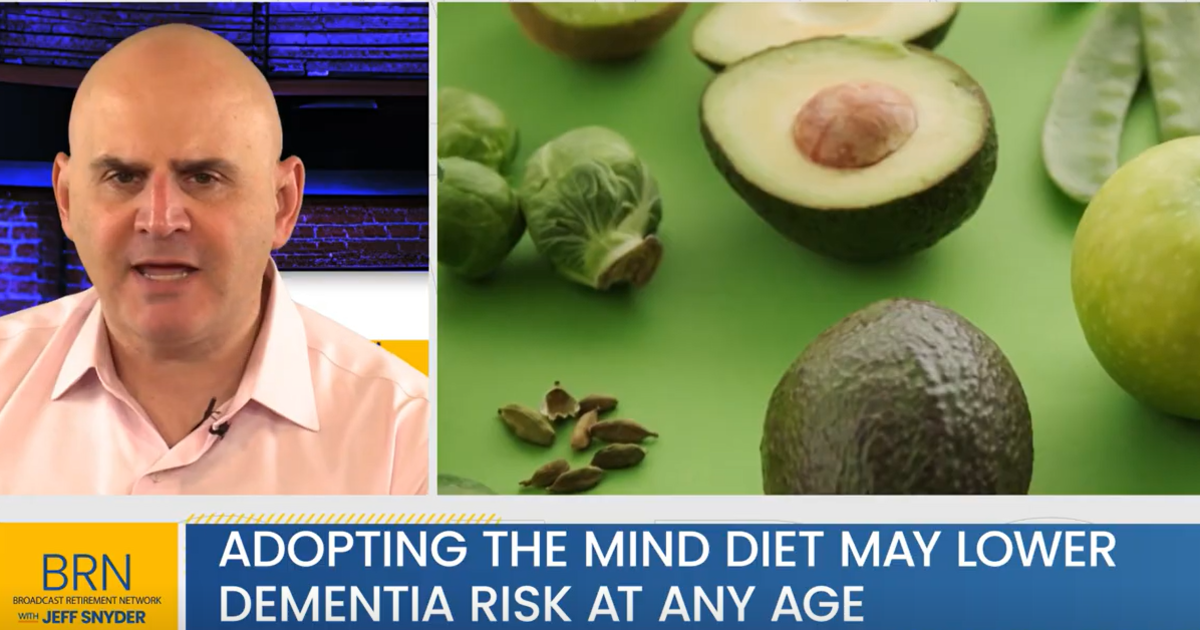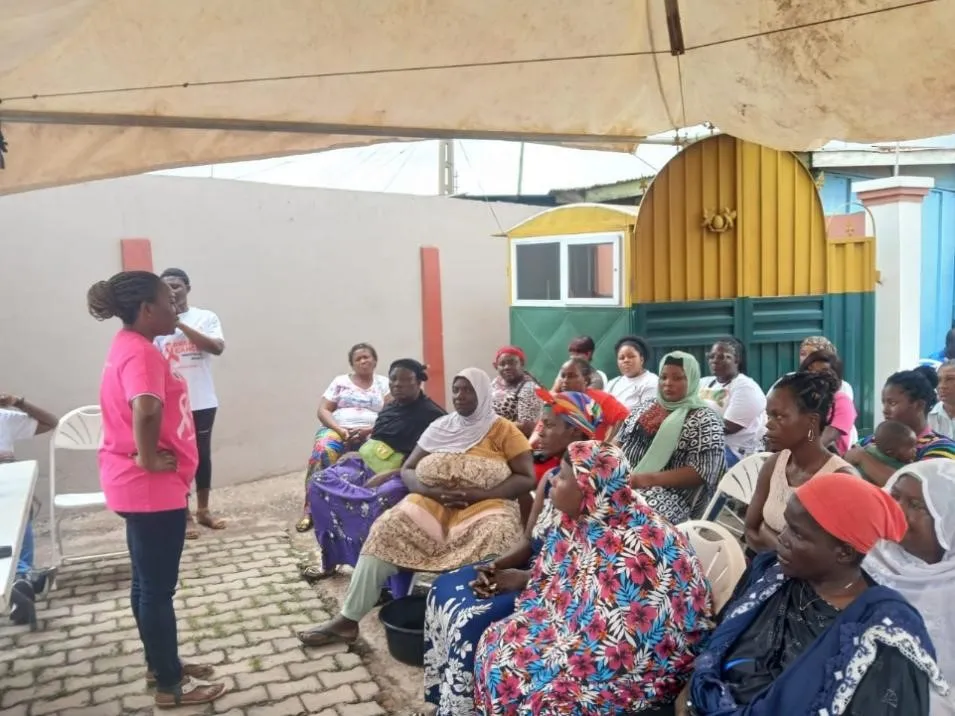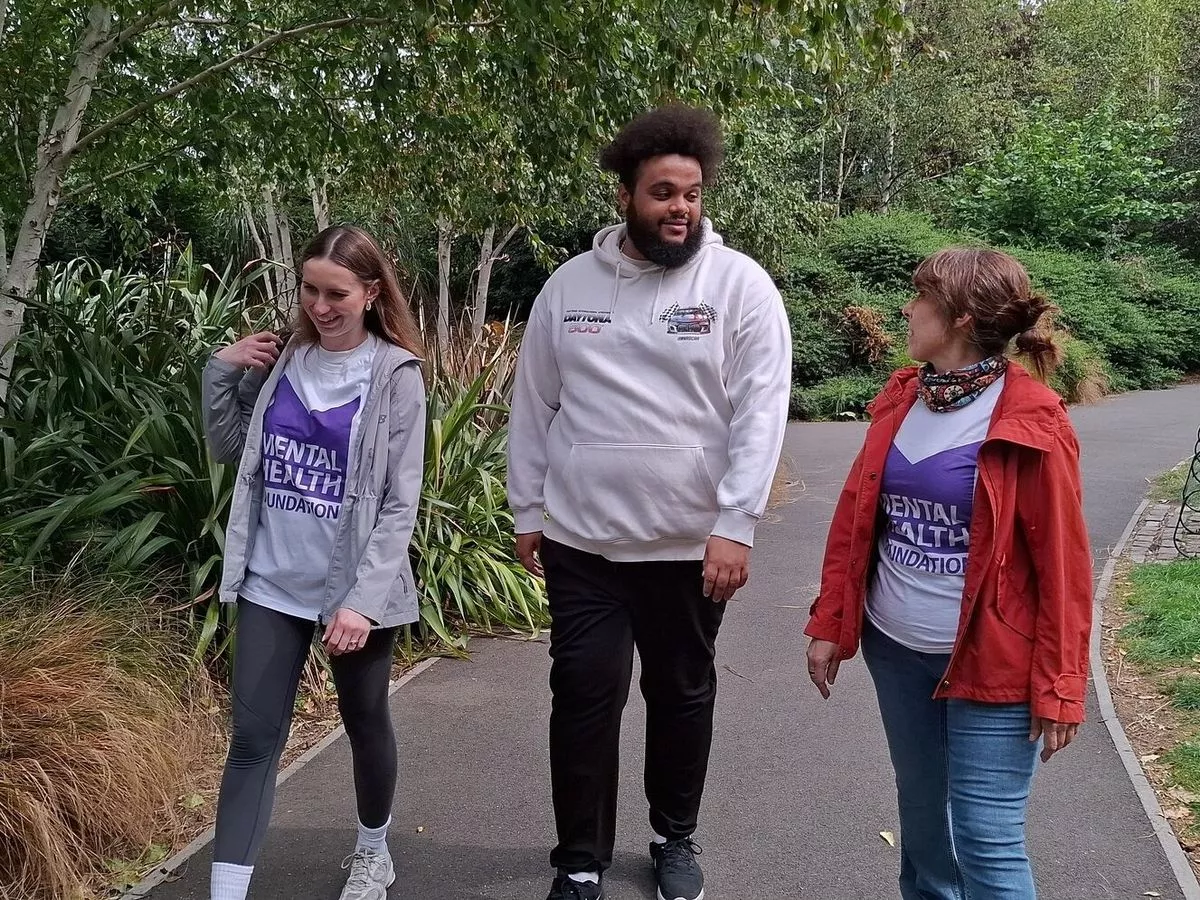Copyright The Street

The MIND diet is rich in leafy greens, berries, nuts, and olive oil Broadcast Retirement Network’s Jeffrey Snyder discusses how lifestyle and diet can lower your dementia risk with Tuft University’s Sarah L. Booth, PhD. Jeffrey H. Snyder, Broadcast Retirement Network This morning on BRN, adopting the MIND diet may reduce dementia risk at any age. Joining me now to discuss this and a lot more, Dr. Sarah Booth is the ASN President and Director of the Jean Mayer USDA Human Nutrition Research Center on Aging at Tufts University. Sarah, so great to see you. Thanks for joining us on the program this morning. Thank you very much for inviting me. We’re going to be talking about dementia risk and possibly lowering your risk for dementia. Let me back up and ask you, what is the MIND diet? Sarah L. Booth, PhD., Jean Mayer USDA Human Nutrition Research Center on Aging at Tufts University Right, so the MIND diet is a diet that is made up of the concepts of the Mediterranean diet, coupled with concepts of the DASH diet. And it’s promoted as a diet that can promote healthy brain aging. Jeffrey H. Snyder, Broadcast Retirement Network And when I think of foods or when someone thinks of foods, if they think about this MIND diet, what would be incorporated? I mean, I’ve heard Mediterranean diet, but what types of foods are we talking about here? Sarah L. Booth, PhD., Jean Mayer USDA Human Nutrition Research Center on Aging at Tufts University Well, the MIND diet actually is just one of many healthy dietary patterns. There’s nothing particularly magical about the MIND diet compared to the other healthy diet patterns like Mediterranean or DASH or actually the dietary guidelines for Americans. They all have very, very common components. So they have high intakes of fruits, vegetables, whole grain, more fish, less red meat, less refined grains. So imagine what you think a healthy diet is and most of those components you would find in the MIND diet. One unique facet about the MIND diet is for fruits, they promote berries because there is some literature around the role of berries in brain health, and they also promote red wine in the MIND diet. Jeffrey H. Snyder, Broadcast Retirement Network Red wine. I mean, that should be on everyone’s diet, except for the small child who’s under 21. Or yeah, under 21. Let me ask you about, you actually in the study, you and the team found that eating this diet over a decade or so actually lowers your dementia risk. How does that all tie in? Sarah L. Booth, PhD., Jean Mayer USDA Human Nutrition Research Center on Aging at Tufts University So just as a point of clarification, I was not part of the study team, but my understanding is what they did is they took a very well-characterized cohort, the multi-ethnic cohort that’s based in University of Hawaii, and they scored people’s diet, whether it met the MIND diet or it didn’t meet the MIND diet. And then they compared the cognitive outcomes and they found that those who were more adherent to that MIND diet score had lower risk of cognitive decline compared to those who did not adhere to it. Jeffrey H. Snyder, Broadcast Retirement Network And hence, the study and why people should certainly consider this. I mean, dementia cases, I think, are on the rise, Sarah. Is that a true statement? Sarah L. Booth, PhD., Jean Mayer USDA Human Nutrition Research Center on Aging at Tufts University There are more people in America now who have dementia than they did maybe 10 years ago. It’s not because more people are at risk in terms of there’s more risk involved. It’s because more people are getting older. So right now, the fastest demographic, growing demographic in the United States are people over the age of 65. Within a few years, we’re going to have more people in the United States over the age of 65 than under the age of 18. And the number one risk factor of dementia is age. It doesn’t mean if you get older, you will definitely get dementia. It’s just dementia for most people manifest when they’re in those older years. So we have more cases because we have more people who are over the age of 65. And actually, we have a lot more people over the age of 85, which is more around the time when dementia manifests itself. Jeffrey H. Snyder, Broadcast Retirement Network I mean, clearly, we’re living longer. Is the message to adopt this diet, like, should I be, if I’m 53, should I be adopting this? And I do eat some of these items, and I don’t eat a lot of bad food. But is the message focused on people in their 40s, 50s, and 60s? Or does this go all the way back to the 10, the 15, the 20-year-old, those young people who think that they’re invincible? Now, hey, learn, make sure that you’re eating the right things, throw away the processed food, or at least don’t eat it on a frequent basis. Sarah L. Booth, PhD., Jean Mayer USDA Human Nutrition Research Center on Aging at Tufts University Well, you’re asking the basic question we don’t have the answer for, which is what are the critical periods of time over the life course when a healthy diet has more impact than other times? What we do know right now from the literature is early in life, while we’re laying down, we’re reaching peak cognition, that’s very important for a healthy diet. There’s some new literature that’s coming out that indicates that people in their 40s and 50s, that is a really critical window for improving your diet, for reducing risk of dementia later on. I would argue there’s never a day that’s too late. I mean, quite frankly, eating healthy, you start, today’s the first day, right? Yeah. Jeffrey H. Snyder, Broadcast Retirement Network Yeah, and I mean, it just seems to make a lot of sense for a lot of different reasons. America, not only dementia cases going up because we’re getting older, as you stated, but chronic disease in Jeanral has gone up, diabetes, heart disease, obesity. I mean, it is prescient on people to take the right steps now. It just makes a lot of sense. Sarah L. Booth, PhD., Jean Mayer USDA Human Nutrition Research Center on Aging at Tufts University It does, but so in my position, I was the chair of the 2025 Dietary Guidelines Advisory Committee. We did document in that report that rate of chronic disease is going up. One of the big challenges, Jeff, we don’t really understand why people eat what they eat. There’s a lot of theories out there. I would say there’s a lot of pointing fingers, but at the end of the day, the eating behavior is far more complex than perhaps we’re giving it credit for. And I think that in our field of nutrition, there’s really an importance for focusing very much on eating behavior. Why do we eat what we do when we eat it? Jeffrey H. Snyder, Broadcast Retirement Network Yeah, I would imagine, I’m just spitballing here, but some of it is cultural or where you are located. Do you live in an area that maybe doesn’t have like a store that has some of these foods? Right? I mean, there’s a lot of reasons behind it or budgetary because look, we’re all experiencing the price of eggs going through the roof, the price of groceries going through the roof. Some of it’s got to be based on the back pocket. Sarah L. Booth, PhD., Jean Mayer USDA Human Nutrition Research Center on Aging at Tufts University You’re hitting all the key points. I think also we have to recognize in 2025, most families, both parents or if there’s a double head of household, household heads are in the workplace. And a lot of our diet has shifted as many of us are in the workplace. You know what it’s like. At the end of the day, you’re looking more for convenience. You don’t have the ability to spend the day cooking from scratch. And I think that that’s a big issue that we tend to overlook because many people have multiple jobs and you throw in everything else like childcare, elder care. Yeah. So there’s a lot of complexity. There’s also the hormonal, the physiological responses. We all vary what our triggers are, what we crave. So I think it’s a very complex question that we’ve got to tackle sooner than later in order to address the chronic disease crisis. Jeffrey H. Snyder, Broadcast Retirement Network Certainly research is continuing. I mean, we outlined some findings from the research. Are there lessons for policymakers? And I’m not saying that local, state, federal policymakers are the end all, be all. These are behavioral choices for individuals. But are there some lessons here as we have an aging America? And by the way, the rest of the world is aging too. So are there lessons for these individuals in government to maybe come up with more regulations? I’m not saying that’s the right approach, but are there lessons there based on this research? Sarah L. Booth, PhD., Jean Mayer USDA Human Nutrition Research Center on Aging at Tufts University Well, so this is my personal opinion. My personal opinion, and I think the study we started to talk about at the top of this interview is a clear demonstration that when people eat healthier foods, they have lower risk of a chronic disease such as dementia. I think we have a lot of the guidance already of what we should be eating. I don’t think we have a lot of guidance based on literature on why we’re eating what we do. I personally would advocate for a lot more research in the behavior of eating, quite frankly. It’s not an area that I do research in. And I am in awe of the people who do because it’s so complex. But to me, that’s where we need to be focusing. Jeffrey H. Snyder, Broadcast Retirement Network Yeah, really, really good advice. And hopefully you and others can take the lead in making that happen because we need to know you know, how we make decisions, why we make decisions certainly important and impactful on our lives throughout our lives. Sarah, we’re going to have to leave it there. It’s great to see you. Thanks for joining us. And we look forward to having you back on the program again very soon. Thank you very much, Jeff. Don’t forget to subscribe to our daily newsletter, The Morning Pulse, for all the news in one place. Details, of course, at our website. And your subscription supports all this great BRN content. We’re back again tomorrow for another edition of BRN. Until then, I’m Jeff Snyder. Stay safe, keep on saving, and don’t forget, roll with the changes.



